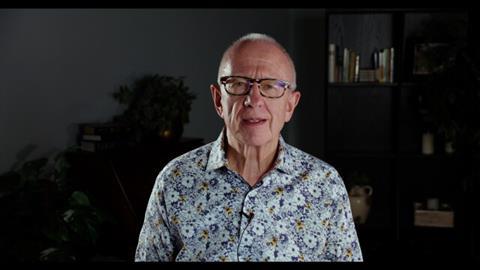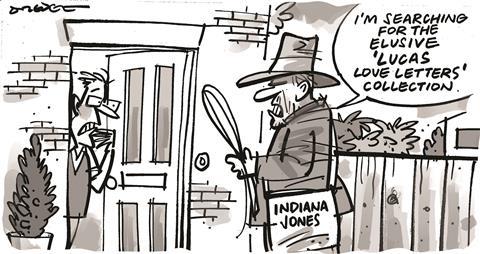The author and teaching pastor doesn’t want to go back to his first faith. But his first love is another matter

In a cardboard box, locked away safely, an elastic band secures about 50 letters that my wife Kay and I exchanged when we first started dating. We hope that nobody will find them until we are both dead; if they are discovered before, the embarrassment would likely kill us.
Decades before email, this pair of lovestruck teenagers poured out their hearts to each other in oodles of gushy, romantic prose. But it’s not just the saccharine sentences that cause me to blush; as relatively new Christians, we were determined to put Jesus first in our relationship. That meant our rather cheesy epistles were peppered with religious sentiments: “I love you so much, darling, but of course I love Jesus more”, and: “I am so grateful that the Lord brought us together, hallelujah!”

Looking back, I’ve realised the letters reveal some rather neurotic tendencies, especially on my part. My early days as a follower of Jesus were exciting and bewildering. Stunned by the news that there was a God who loved me, I was desperate – perhaps frantic – to please him. I was quite terrified that I might miss God’s perfect will, and as the choice of a life partner was the most critical decision I would make, I was mortified at the thought of getting it wrong. Added to that, a Christian friend told me that God’s plan for my life would probably be in direct conflict with anything I actually wanted. I think they had previously been employed as an advisor to Job.
I liked and loved Kay. Did this mean that I should reject her and marry someone I wasn’t attracted to? Blessed to be part of a genuinely caring church with a smiling, understanding pastor, I ultimately navigated these hurdles and, more than four decades later, Kay and I remain happily married.
But as I thought a little more about those letters, I realised that while they were somewhat obsessive, they reveal hearts that utterly wanted to please the Lord. Someone has said that we find ultimate peace when we make the will of God our home, and that was us. We were ready to do anything and go anywhere for Jesus. All these years later, I’m wondering if I still have the same passion.
I don’t want my first faith. It was neurotic, jumpy and, given I was a biblical newbie who didn’t know the difference between the Old and New Testaments or the maps at the back, it was theologically uninformed.
But first love? Now, that is not only what I want, but what is vital. In addressing the church of Ephesus in the book of Revelation, Jesus is bluntly confrontational. He commends them for their good works and perseverance in the face of hardships, and encourages them for discerning and rejecting false teaching. But then comes a stinging rebuke: “Yet I hold this against you: you have forsaken the love you had at first. Consider how far you have fallen! Repent and do the things you did at first” (Revelation 2:4-5). First love had chilled into cold religion.
While my professions of love for Kay were a lot about emotions, Jesus points to a love that is expressed in actions, calling the Ephesians to do what they used to do. Our feelings are not the barometer of our spirituality – rather what we do shows the true measure of our love for Christ.
So I’m praying and asking the Holy Spirit to show me where my heart is. First love for Christ is what I crave. And I’m adding another prayer request: “Dear Lord, let no one ever find those letters.”


































No comments yet